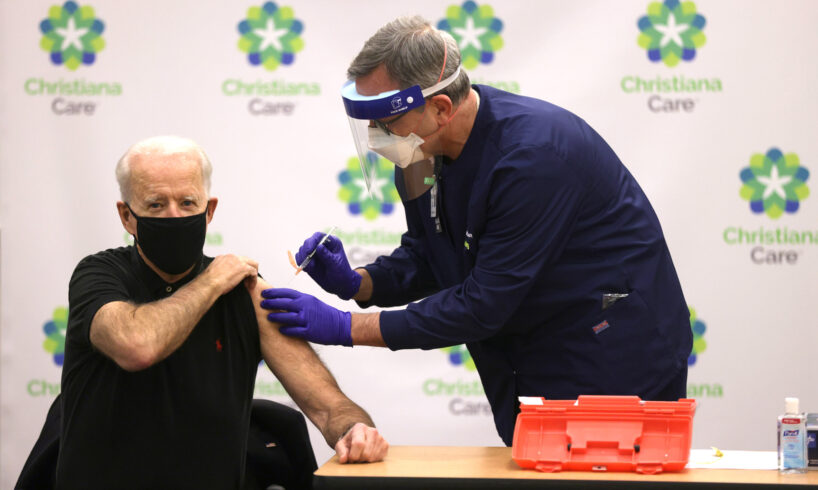
The Biden administration recently announced support for a push by the World Trade Organization (WTO) to strip intellectual property protections from Covid-19 vaccines.
That endorsement, though well-intentioned, should send shivers down the spines of university and corporate R&D lab workers across America. Especially since it follows on the heels of some policymakers’ attempts to seize American firms’ intellectual property, using a strained interpretation of a four-decade-old law.
Gutting IP protections would eliminate the incentives for private sector investors to take initial discoveries – often made in university labs – and turn them into tangible medicines and medical devices that actually benefit patients.
Advocates for stripping IP protections often point to successful drugs that initially benefited from research at a university that was federally funded and thus should be ‘controlled’ by the government. These IP rights, however, are currently protected by the University and Small Business Patent Procedures Act. This bipartisan legislation, enacted in 1980 and better known as the Bayh-Dole Act, allows universities to own and license inventions that arose from federally-funded research.
Universities license IP rights to private sector companies who commercialize research discoveries and make products available to the public. Before this law, the federal government (not universities) held the rights to such patents. Some 30,000 of those patents languished, gathering dust in federal filing cabinets, with fewer than 1 in 20 ever reaching the clinic or the open market.
For U.S. Sen. Birch Bayh (D-IN) and Bob Dole (R-KS), the purpose of the act was to “spur the interaction between public and private research so that patients would receive the benefits of innovative science sooner.” In the ensuing 40 years, their legislation has enabled universities and industry licensees to develop and bring to market more than 200 life-saving new medicines.
All have witnessed the most recent fruit of the Bayh-Dole Act – mRNA technology from the University of Pennsylvania was licensed to Pfizer and Moderna, who used it to develop COVID-19 vaccines.
I fear that Biden’s IP waiver on COVID-19 vaccines, coupled with ongoing attempts to twist the Bayh-Dole Act to allow government officials to modify the terms of IP licenses that companies receive from universities, will disincentivize the private sector from investing in early-stage university inventions that are years away from becoming viable commercial products.
If companies fear that the government will intervene after years of expensive R&D, they will not invest in the first place.
IP protections exist for a reason – because they work. We must not allow the admirable quest for health equity to kill the research goose that lays innovation’s golden egg.
This article was originally posted on Gutting IP rights will upend university research, a font of innovation